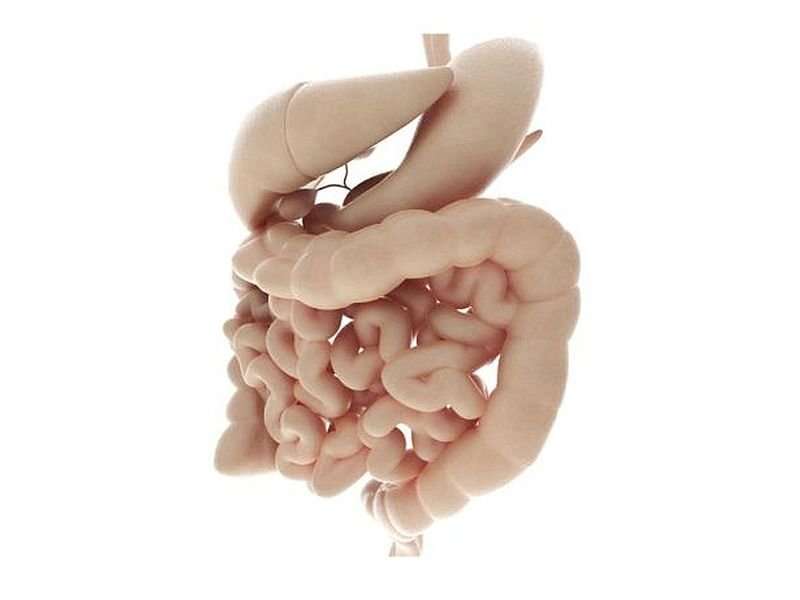(HealthDay)—For patients with acute severe ulcerative colitis (ASUC), the baseline Mayo Endoscopic Score and the C-reactive protein (CRP)/albumin ratio predict treatment response to infliximab, according to research published online Dec. 21 in the Journal of Gastroenterology and Hepatology.
Matthew C. Choy, M.B.B.S., from Austin Health in Australia, and colleagues conducted a retrospective analysis involving 54 hospitalized patients who received infliximab for ASUC. Patients were followed for 12 months to identify factors that predict colectomy and may guide dose intensification.
The researchers found that the overall colectomy rate was 15.38 and 26.92 percent at three and 12 months, respectively. Two of the patients were lost to follow-up. Those treated with accelerated (AI) versus standard infliximab induction strategies had a numerically higher colectomy rate; however, AI treatment was correlated with more severe biochemical disease. A CRP/albumin ratio cutoff of 0.37 after starting infliximab and before discharge significantly predicted colectomy (area under the receiver operating curve, 0.73). Pretreatment CRP and albumin levels did not predict colectomy. A Mayo Endoscopic Score of 2 had a 94 percent positive predictive value for avoidance of colectomy after infliximab salvage.
"The baseline Mayo Endoscopic Score and the CRP/albumin ratio following infliximab salvage are significant predictors of treatment response for ASUC and identify patients at high risk of colectomy," the authors write. "Whether this risk can be mitigated using infliximab dose intensification requires prospective evaluation before the CRP/albumin ratio can be integrated into ASUC management algorithms."
Several authors disclosed financial ties to the pharmaceutical industry.
More information:
Abstract
Full Text (subscription or payment may be required)
Copyright © 2017 HealthDay. All rights reserved.






















